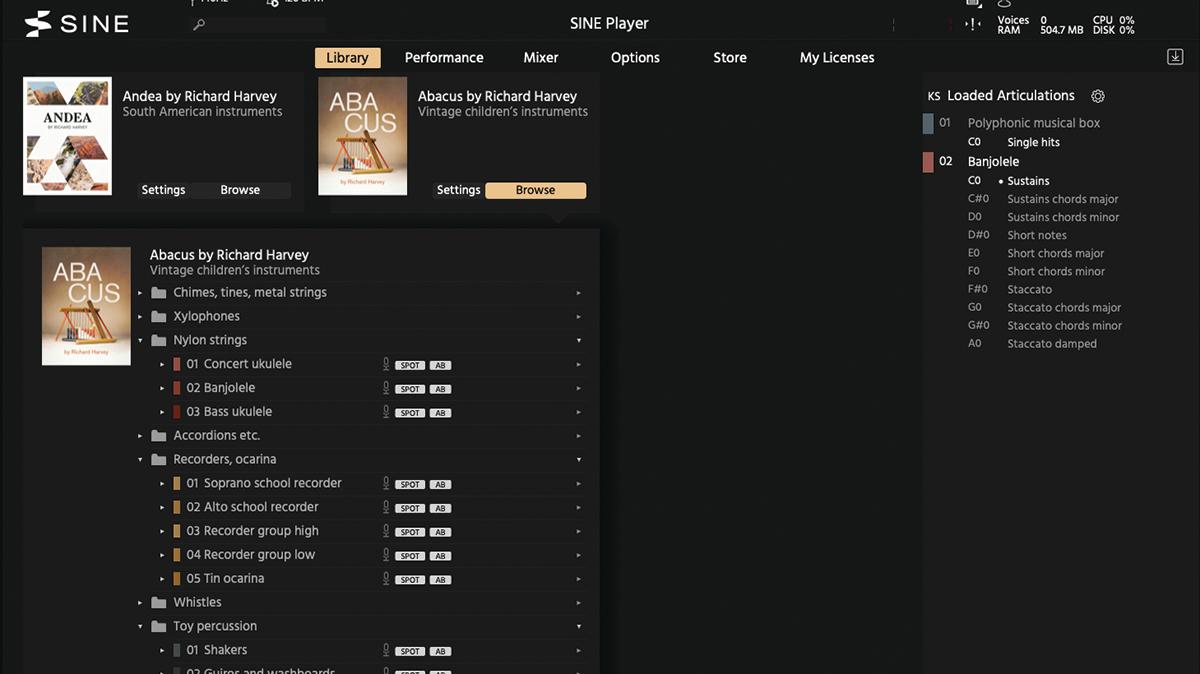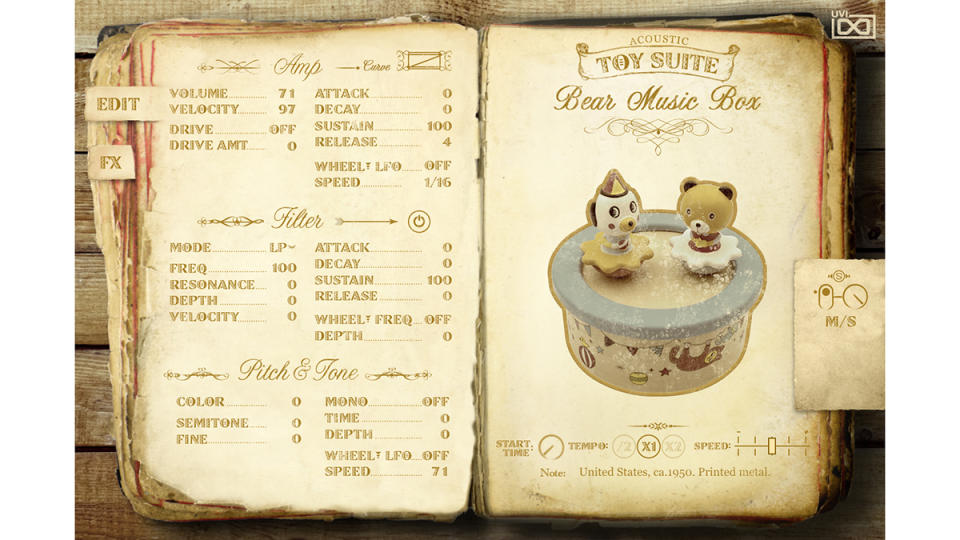Orchestral Tools Abacus review

- Oops!Something went wrong.Please try again later.
Orchestral Tools Abacus: What is it?
Many producers and composers collect weird and wonderful instruments, because you just never know when they might come in handy. One such composer is Richard Harvey; a veteran media composer in his own right, who has also scored and collaborated with the likes of Hans Zimmer and Paul McCartney, to name just two! He has amassed a sizeable collection of instruments, many of which might be categorised as toys, adopting a persona which lend themselves to childlike fantasy and beyond.
This package has been curated and recorded exclusively by Richard, at his studio in Surrey, England. The result is a sizeable volume of 63GB worth of samples, across a number of different toy-like categories, all enlisted within OT’s own free Sine Player plugin. In line with other OT products, you can also buy individual instrument categories, for a very modest fee. We like this pseudo-modular feel as it allows us to dictate content, but as we would discover, the sum of these parts becomes pretty special.

Orchestral Tools Abacus: Performance and verdict
The library is sorted into seven categories. This begins with an extensive collection of chimes, tines and metal strings.
Also consider...

• UVI Toy Suite
About as comprehensive as can be. with samples from the likes of Speak and Spell, plus chip-tune.
• Cymatics Toy Shop Vol. 1
More of a Foley library, but given the lack of price-tag, it’s a great budget option!
It’s possible to guess the sort of instrumentation that might be included; the primary school favourite ‘Metallophone’ is available in soprano, alto and bass forms, providing a subtle alternative to the more abrasive Glockenspiel, which is often the first-call for any struck metallic sound. There’s also considerable range and purity available from the Musical Boxes; these are included as individually sampled notes, and not merely recordings of Für Elise. It’s obvious that real care and attention has been taken with the miking of these samples. There are five mixable mic positions throughout and in many instances, such as the Polyphonic Musical Box, the breadth across the soundstage is excellent.
Many of the sounds created within comply to the ‘toy’ diktat, but they also provide great sonic content which might be considered more professional in audible make up. The Nylon Strings section provides both ukulele and banjolele samples, both of which sound far from amateur or toy-like. This is far less the case with instruments such as the toy pianos; the detuned nature of these sounds provide the school-like charm, but they actually work well within a composition or mix, when accompanying other instrumentation with more rigorous tuning.
With some misgivings, we ventured to the recorder and ocarina section, where Richard Harvey has provided solo versions of these instruments, alongside two Recorder Group patches. These are relatively effective, albeit in a form which could be regarded as the best school recorder group we have ever heard! There is a small degree of latency across the group patches, possibly due to Sine’s operation of the portamento patches. This is something we have observed with other Sine-based libraries, but the latency isn’t extreme here and playing remains viable.
More toys in the cupboard
Amid the considerable remaining content, we discover accordions, melodicas, whistles, and even a vast array of toy percussion. This also extends to a ruler being twanged on a table, before being repurposed as a bass sound!
You’ll find content which is high-end and usable in many different production scenarios
Whatever your misgivings may be about the concept of this package, it is undeniably impressive in all the areas that you would wish it to be, with swathes of content that you didn’t expect. At its heart, the vintage toys provide charm and raise a smile, but you’ll also find content which is high-end and usable in many different production scenarios and across genres. Who knew that being this childish could be so endearingly impressive and hugely addictive?
MusicRadar verdict: If you find yourself trying to evoke a sense of childhood in your compositions, Abacus will serve exactly what you need.
Orchestral Tools Abacus: Hands-on demos
Orchestral Tools
The Sampleist
Orchestral Tools Abacus: Specifications
macOS 10.13 or higher | Intel Core i5 or similar | Apple M1 chipset supported | At least 8GB RAM (16GB+ recommended).
Windows 10 | Intel Core i5 or similar | At least 8GB RAM (16GB+ recommended).
Formats supported: Standalone, VST, VST3, AU, AAX.
CONTACT: Orchestral Tools

